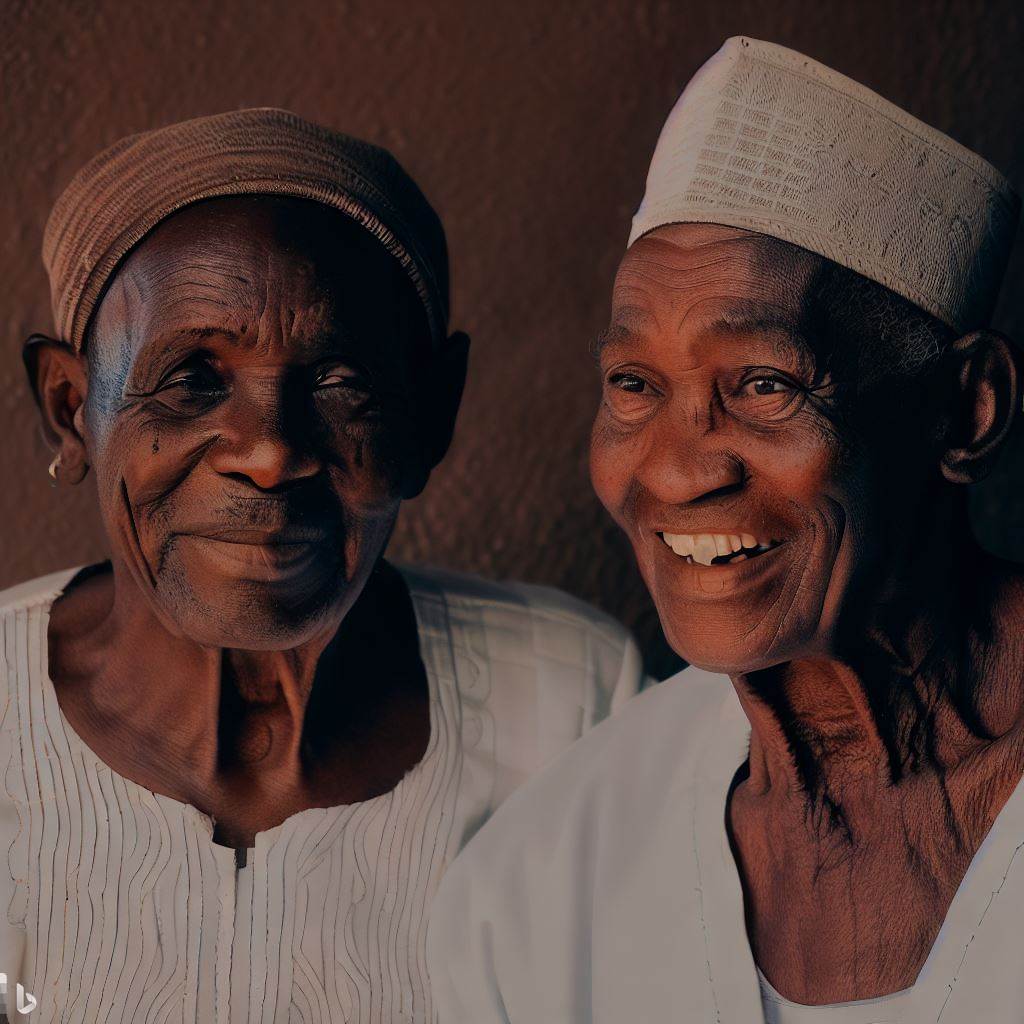Introduction
Physical therapy entails exercises and techniques to enhance mobility and function. Nigeria’s expanding elderly demographic encounters distinct health challenges. Hence the need to look at the impact of physical therapy on Nigeria’s elderly
This article delves into how physical therapy affects the elderly in Nigeria and its advantages.
The nation’s aging population grapples with age-related health issues. Physical therapy’s significance lies in its potential to mitigate these concerns.
By focusing on exercises tailored to individual needs, physical therapists address mobility limitations, alleviate pain, and enhance functional abilities.
Furthermore, physical therapy aids in preserving independence, facilitating active engagement in daily activities.
It proves invaluable not only in managing existing conditions but also in preventing potential falls and injuries through personalized exercise programs.
However, physical therapy wields a transformative impact on Nigeria’s elderly population. It addresses age-associated health issues and contributes to holistic well-being.
By emphasizing its personalized approach, fostering accessibility, and countering challenges with awareness, physical therapy has the potential to elevate the quality of life for Nigeria’s elderly and steer the nation towards a more health-conscious future.
The Current State of Nigeria’s Elderly Population
The population of elderly individuals in Nigeria is steadily increasing. This demographic faces various challenges, including age-related health issues and limited access to healthcare services.
Effective interventions like physical therapy are needed to address these challenges.
Increasing population of elderly individuals in Nigeria
The elderly population in Nigeria is experiencing significant growth, which presents both opportunities and challenges for the nation.
As the baby boomer generation ages, Nigeria’s elderly population is expected to increase significantly in the coming years.
This demographic shift necessitates a closer look at the impact on the healthcare system and the urgent need for interventions like physical therapy to improve their quality of life.
Challenges faced by this demographic, such as age-related health issues and limited access to healthcare services
One of the primary challenges faced by Nigeria’s elderly is age-related health issues. As individuals age, they are more prone to chronic diseases such as arthritis, hypertension, and cardiovascular issues.
These ailments often limit their mobility and cause significant discomfort. Additionally, many elderly individuals face cognitive decline and an increased risk of falling, which can result in fractures and other injuries.
Compounding these health issues is the limited access to healthcare services in Nigeria. Many elderly individuals residing in rural areas lack transportation and financial resources to seek healthcare when needed.
This limited access to medical professionals and specialized care further exacerbates the challenges faced by Nigeria’s elderly population.
Need for effective interventions like physical therapy
Physical therapy is crucial for Nigeria’s elderly. It enhances mobility, reduces pain, and bolsters functionality, enabling independent lives.
Preventive care through tailored exercises reduces falls, injuries, and healthcare expenses. It’s adaptable, aiding both urban and rural elderly individuals.
Challenges include limited resources and cultural perceptions. Prioritizing accessibility, awareness, and training can enhance elderly care in Nigeria.
Read: Registration Process for Occupational Therapists in Nigeria
Understanding the Importance of Physical Therapy for the Elderly
Physical therapy and its objectives
Physical therapy is a healthcare profession that aims to restore and improve physical function. Its objectives include reducing pain, improving mobility, and enhancing overall physical capabilities.
Relevance of physical therapy in improving the quality of life for the elderly
Physical therapy plays a crucial role in improving the quality of life for the elderly. By addressing physical limitations, it allows them to remain independent and engage in daily activities.
Elderly individuals who receive physical therapy often experience enhanced balance and coordination. This reduces their risk of falls, which is particularly important as falls can have severe consequences for the elderly.
Common conditions that can be addressed through physical therapy, such as arthritis, osteoporosis, and post-stroke rehabilitation
Physical therapy also helps manage chronic conditions commonly seen in the elderly like arthritis. Arthritis, a degenerative joint disease, causes pain, stiffness, and limited range of motion.
Through specific exercises and techniques, physical therapy can alleviate pain and improve joint function.
Osteoporosis, a condition characterized by weak and brittle bones, is another common concern among the elderly. Physical therapy can help prevent osteoporotic fractures by promoting bone-strengthening exercises.
Post-stroke rehabilitation is another essential area where physical therapy makes a significant impact. After a stroke, individuals often experience difficulties with movement, balance, and coordination.
Physical therapists devise personalized treatment plans to help regain strength and restore motor skills.
Moreover, physical therapy contributes to the mental well-being of the elderly by boosting their self-esteem. Being able to perform daily tasks independently enhances their sense of accomplishment and self-worth.
Engaging in physical therapy sessions also provides social interaction, reducing feelings of isolation or loneliness. It creates a supportive environment where individuals can share experiences and build connections.
In short, physical therapy empowers the elderly to age gracefully and live life to the fullest. It enables them to maintain their physical independence, reduce pain, and improve overall well-being.
With the help of physical therapy, the elderly can live a more active and fulfilling life. By addressing common conditions like arthritis, osteoporosis, and post-stroke rehabilitation, physical therapy is invaluable.
Read: Mental Health in Nigeria: How Psychiatrists are Changing the Game
Benefits of Physical Therapy for Nigeria’s Elderly Population
In this section, we will discuss the positive impact of physical therapy on mobility and functional independence, highlight how physical therapy can alleviate pain and promote better mental health, and address the role of physical therapy in preventing falls and reducing the risk of injuries in the elderly.
Improved Mobility and Functional Independence
Physical therapy helps seniors regain strength and mobility, allowing them to perform daily activities. With targeted exercises and techniques, physical therapy enhances balance and coordination in the elderly.
Elderly individuals can achieve greater independence and maintain a higher quality of life through improved mobility.
Alleviation of Pain and Promotion of Better Mental Health
Physical therapy provides pain relief for seniors suffering from chronic pain conditions such as arthritis.
Through various modalities and exercises, physical therapy helps reduce inflammation and improve joint flexibility.
By alleviating pain, physical therapy also promotes better mental health and psychological well-being in the elderly.
Prevention of Falls and Reduction of Injury Risks
Physical therapy plays a crucial role in preventing falls, which are a leading cause of injury in the elderly.
Therapists assess and improve balance, gait, and strength to reduce the risk of falls among the elderly.
By targeting muscle groups and teaching proper techniques, physical therapy helps seniors maintain stability and avoid accidents.
Additionally, physical therapy helps individuals recover faster from injuries, reducing the overall impact of accidents.
In fact, physical therapy offers numerous benefits for Nigeria’s elderly population. It improves mobility and functional independence, alleviates pain, promotes better mental health, and prevents falls and injuries.
By incorporating physical therapy into the healthcare system, we can enhance the well-being and quality of life for the elderly in Nigeria.
Read: In-Depth: The Regulatory Bodies Governing Psychiatry in Nigeria

Challenges and Opportunities in Implementing Physical Therapy in Nigeria
Existing challenges in providing physical therapy services to the elderly population
Providing physical therapy services to Nigeria’s elderly population faces several existing challenges. These challenges include a shortage of qualified physical therapists and limited access to facilities.
One of the main challenges in implementing physical therapy in Nigeria is the shortage of qualified physical therapists.
There are not enough professionals in this field to meet the growing demand of the elderly population. As a result, many elderly individuals are unable to receive the necessary physical therapy to improve their quality of life.
Another challenge is the limited access to facilities. Physical therapy requires specialized equipment and facilities that are not widely available in Nigeria.
This lack of access prevents many elderly individuals from receiving the proper care and treatment they need.
Potential solutions and opportunities for improvement
Despite these challenges, there are potential solutions and opportunities for improvement in implementing physical therapy in Nigeria.
One solution is to increase awareness about the importance of physical therapy for the elderly. By raising awareness, more individuals can advocate for the need to invest in this area of healthcare.
Investing in training programs is another opportunity for improvement. By providing adequate training for physical therapists, more professionals can be qualified to meet the demand of the elderly population.
These training programs should focus on geriatric physical therapy to address the specific needs and concerns of elderly individuals.
Creating specialized geriatric rehabilitation centers is another potential solution. These centers would be dedicated to providing comprehensive physical therapy services to the elderly.
They would be equipped with the necessary facilities and resources to cater specifically to the needs of elderly patients.
In general, implementing physical therapy in Nigeria for the elderly population faces challenges such as a shortage of qualified physical therapists and limited access to facilities.
However, there are opportunities for improvement, including increasing awareness, investing in training programs, and creating specialized geriatric rehabilitation centers.
By addressing these challenges and seizing these opportunities, Nigeria can enhance the impact of physical therapy on its elderly population.
Read: Clinical vs. Counseling Psychology in Nigeria
Real-Life Success Stories
Physical therapy has had a profound impact on the lives of elderly individuals in Nigeria. Let us explore some inspiring success stories that exemplify the transformative effects of this therapeutic approach.
Mrs. Adeleke: Overcoming Chronic Pain
Mrs. Adeleke, a 75-year-old grandmother, had been suffering from chronic back pain for several years. Simple daily activities became arduous tasks, limiting her mobility and independence.
Upon starting physical therapy sessions, Mrs. Adeleke gradually regained strength in her back muscles through targeted exercises and stretches.
As her pain decreased, she became more active, engaging in activities she had long abandoned.
Mrs. Adeleke’s firsthand experience with physical therapy has not only improved her physical well-being but also enhanced her overall quality of life.
Read: Step-by-step Guide to Becoming a Nursing Assistant in Nigeria
Mr. Okafor: Restoring Mobility After Stroke
Mr. Okafor, a resilient 82-year-old man, suffered a stroke that left him partially paralyzed on his right side. This immobilization affected his ability to perform everyday tasks, leaving him dependent on others.
With the assistance of physical therapists, Mr. Okafor began a rehabilitation program tailored to his specific needs. Through various exercises and manual techniques, he gradually regained movement in his affected limbs.
Over time, Mr. Okafor’s dedication and the expertise of his physical therapists allowed him to regain significant mobility.
Today, he can independently walk short distances and perform essential activities, restoring his sense of self-worth and independence.
Mrs. Ibrahim: Managing Arthritis Pain
For Mrs. Ibrahim, a lively 68-year-old woman, arthritis had become a constant source of pain and frustration. Simple tasks such as climbing stairs or gripping objects had become increasingly challenging.
Physical therapy introduced Mrs. Ibrahim to a range of exercises that improved her joint flexibility and strength, reducing her pain and increasing her mobility.
The therapists also provided her with useful strategies to manage her symptoms outside of sessions.
As a result of physical therapy, Mrs. Ibrahim now experiences fewer flare-ups and has learned to adapt her lifestyle to accommodate her condition, allowing her to enjoy her daily activities with reduced discomfort.
Mr. Adeleke: Regaining Balance and Preventing Falls
Mr. Adeleke, a vibrant 79-year-old man, had been experiencing balance issues that increased the risk of falls. These falls often led to injuries and a loss of confidence and independence.
Physical therapy helped Mr. Adeleke address his balance difficulties through specific exercises that targeted his coordination and stability. With consistent effort, he gradually regained his equilibrium and reduced his risk of falling.
Now equipped with better balance control, Mr. Adeleke feels more confident navigating his surroundings, allowing him to actively participate in his hobbies and spend time with loved ones.
These success stories only scratch the surface of the transformative power of physical therapy for Nigeria’s elderly population.
Each individual’s journey is unique, but they all share the common goal of improving their health and well-being.
By sharing these real-life examples, we hope to inspire others to seek physical therapy as a vital component of their overall care plan.
Because with the right guidance and dedication, the elderly in Nigeria can experience remarkable improvements in their quality of life through physical therapy.
Read: How to Become a Diagnostic Medical Sonographer in Nigeria
Conclusion
Physical therapy plays a crucial role in improving the lives of Nigeria’s elderly population. Through its various interventions and treatments, physical therapy can alleviate pain, restore mobility, and enhance the overall quality of life for elderly individuals.
Moreover, physical therapy has the potential to positively impact the healthcare system in Nigeria.
By reducing the burden on hospitals and healthcare facilities, physical therapy can help alleviate overcrowding and provide cost-effective solutions for managing chronic conditions in the elderly.
Publish Your Professional Profile, Business or Brand
Showcase your expertise, gain trust, and boost visibility instantly on Professions.ng.
Publish NowIt is vital for readers to support initiatives that promote access to physical therapy services for Nigeria’s elderly individuals.
By advocating for increased funding and resources, we can ensure that more elderly citizens have easy access to high-quality physical therapy services.
In the end, physical therapy has the power to transform the lives of Nigeria’s elderly population and contribute to the improvement of the overall healthcare system in the country.
Let us work together to support and promote the importance of physical therapy for Nigeria’s elderly.




